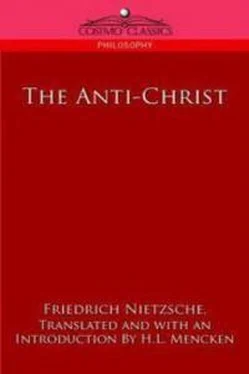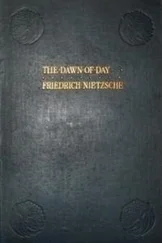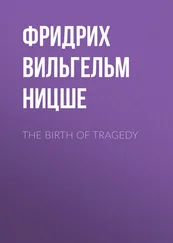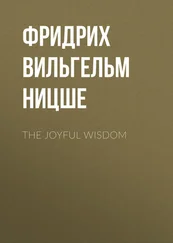Under Christianity neither morality nor religion has any point of contact with actuality. It offers purely imaginary causes ("God," "soul," "ego," "spirit," "free will"—or even "unfree"), and purely imaginary effects ("sin," "salvation," "grace," "punishment," "forgiveness of sins"). Intercourse between imaginary beings ("God," "spirits," "souls"); an imaginary natural history (anthropocentric; a total denial of the concept of natural causes); an imaginary psychology (misunderstandings of self, misinterpretations of agreeable or disagreeable general feelings—for example, of the states of the nervus sympathicus with the help of the sign–language of religio–ethical balderdash—, "repentance," "pangs of conscience," "temptation by the devil," "the presence of God"); an imaginary teleology (the "kingdom of God," "the last judgment," "eternal life").—This purely fictitious world , greatly to its disadvantage, is to be differentiated from the world of dreams; the latter at least reflects reality, whereas the former falsifies it, cheapens it and denies it. Once the concept of "nature" had been opposed to the concept of "God," the word "natural" necessarily took on the meaning of "abominable"—the whole of that fictitious world has its sources in hatred of the natural (—the real!—), and is no more than evidence of a profound uneasiness in the presence of reality…. This explains everything. Who alone has any reason for living his way out of reality? The man who suffers under it. But to suffer from reality one must be a botched reality…. The preponderance of pains over pleasures is the cause of this fictitious morality and religion: but such a preponderance also supplies the formula for décadence ….
A criticism of the Christian concept of God leads inevitably to the same conclusion.—A nation that still believes in itself holds fast to its own god. In him it does honour to the conditions which enable it to survive, to its virtues—it projects its joy in itself, its feeling of power, into a being to whom one may offer thanks. He who is rich will give of his riches; a proud people need a god to whom they can make sacrifices …. Religion, within these limits, is a form of gratitude. A man is grateful for his own existence: to that end he needs a god.—Such a god must be able to work both benefits and injuries; he must be able to play either friend or foe—he is wondered at for the good he does as well as for the evil he does. But the castration, against all nature, of such a god, making him a god of goodness alone, would be contrary to human inclination. Mankind has just as much need for an evil god as for a good god; it doesn't have to thank mere tolerance and humanitarianism for its own existence…. What would be the value of a god who knew nothing of anger, revenge, envy, scorn, cunning, violence? who had perhaps never experienced the rapturous ardeurs of victory and of destruction? No one would understand such a god: why should any one want him?—True enough, when a nation is on the downward path, when it feels its belief in its own future, its hope of freedom slipping from it, when it begins to see submission as a first necessity and the virtues of submission as measures of self–preservation, then it must overhaul its god. He then becomes a hypocrite, timorous and demure; he counsels "peace of soul," hate–no–more, leniency, "love" of friend and foe. He moralizes endlessly; he creeps into every private virtue; he becomes the god of every man; he becomes a private citizen, a cosmopolitan…. Formerly he represented a people, the strength of a people, everything aggressive and thirsty for power in the soul of a people; now he is simply the good god …. The truth is that there is no other alternative for gods: either they are the will to power—in which case they are national gods— or incapacity for power—in which case they have to be good….
Wherever the will to power begins to decline, in whatever form, there is always an accompanying decline physiologically, a décadence . The divinity of this décadence , shorn of its masculine virtues and passions, is converted perforce into a god of the physiologically degraded, of the weak. Of course, they do not call themselves the weak; they call themselves "the good."…No hint is needed to indicate the moments in history at which the dualistic fiction of a good and an evil god first became possible. The same instinct which prompts the inferior to reduce their own god to "goodness–in–itself" also prompts them to eliminate all good qualities from the god of their superiors; they make revenge on their masters by making a devil of the latter's god.—The good god, and the devil like him—both are abortions of décadence .—How can we be so tolerant of the naïveté of Christian theologians as to join in their doctrine that the evolution of the concept of god from "the god of Israel," the god of a people, to the Christian god, the essence of all goodness, is to be described as progress ?—But even Renan does this. As if Renan had a right to be naïve! The contrary actually stares one in the face. When everything necessary to ascending life; when all that is strong, courageous, masterful and proud has been eliminated from the concept of a god; when he has sunk step by step to the level of a staff for the weary, a sheet–anchor for the drowning; when he becomes the poor man's god, the sinner's god, the invalid's god par excellence , and the attribute of "saviour" or "redeemer" remains as the one essential attribute of divinity—just what is the significance of such a metamorphosis? what does such a reduction of the godhead imply?—To be sure, the "kingdom of God" has thus grown larger. Formerly he had only his own people, his "chosen" people. But since then he has gone wandering, like his people themselves, into foreign parts; he has given up settling down quietly anywhere; finally he has come to feel at home everywhere, and is the great cosmopolitan—until now he has the "great majority" on his side, and half the earth. But this god of the "great majority," this democrat among gods, has not become a proud heathen god: on the contrary, he remains a Jew, he remains a god in a corner, a god of all the dark nooks and crevices, of all the noisesome quarters of the world!…His earthly kingdom, now as always, is a kingdom of the underworld, a souterrain kingdom, a ghetto kingdom…. And he himself is so pale, so weak, so décadent …. Even the palest of the pale are able to master him—messieurs the metaphysicians, those albinos of the intellect. They spun their webs around him for so long that finally he was hypnotized, and began to spin himself, and became another metaphysician. Thereafter he resumed once more his old business of spinning the world out of his inmost being sub specie Spinozae ; thereafter he became ever thinner and paler—became the "ideal," became "pure spirit," became "the absolute," became "the thing–in–itself."… The collapse of a god : he became a "thing–in–itself."
The Christian concept of a god—the god as the patron of the sick, the god as a spinner of cobwebs, the god as a spirit—is one of the most corrupt concepts that has ever been set up in the world: it probably touches low–water mark in the ebbing evolution of the god–type. God degenerated into the contradiction of life . Instead of being its transfiguration and eternal Yea! In him war is declared on life, on nature, on the will to live! God becomes the formula for every slander upon the "here and now," and for every lie about the "beyond"! In him nothingness is deified, and the will to nothingness is made holy!…
Читать дальше











